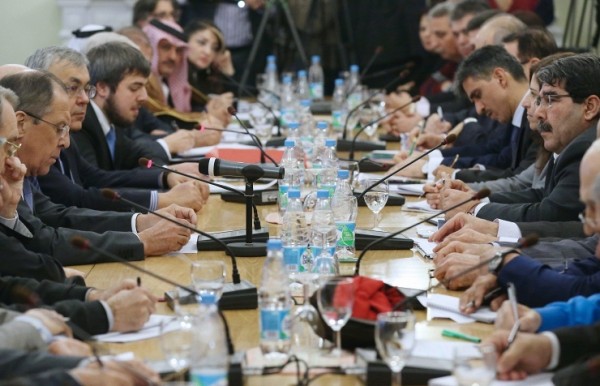
Participants say they do not expect any big breakthrough towards ending a conflict that has killed more than 220,000 people in Syria since early 2011.
January’s unproductive first round of consultations in Moscow was shunned by the main political opposition group, the Western-backed Syrian National Coalition. It said it would take part only if the talks were to lead to the departure of Syrian President Bashar al-Assad, an ally of Russia.
The Istanbul-based SNC has said it will also stay away from the second round of talks, due to last until Thursday. Russia says fighting terrorism in Syria should be the top priority now and has called on the opposition to work with Assad to that end.
Randa Kassis, a former SNC member who now favors talking to Damascus because of the rise of radical Islamists in Syria, said the talks would focus on confidence-building measures including ensuring access for humanitarian aid.
“We won’t get to a political transition without slowly giving and taking,” Kassis, who now heads the Movement of Pluralistic Society, told Reuters.
Moscow has not said which opposition figures will attend. But the line-up is likely to be similar to January, when more than 30 representatives of various groups attended, most from groups tolerated by Assad or who agree that working with Damascus is necessary to combat the rise of Islamic State.
The Syrian Observatory for Human Rights monitoring group said Syrian authorities had released 650 prisoners from at least three prisons in Damascus on March 25-27, including women, children, political prisoners and fighters.
A Moscow-based member of moderate Syrian opposition group the National Coordination Committee said that this was not enough, however, and that any attempt by Damascus to tie the release of these people to the talks would be “just an act”.
“We’ll see what the government delegation comes up with, including on the humanitarian front, but I am not hopeful for anything special. It’ll be more of a continuation of dialogue at best,” said the representative, who declined to be named.
Reuters

Leave a Reply
You must be logged in to post a comment.